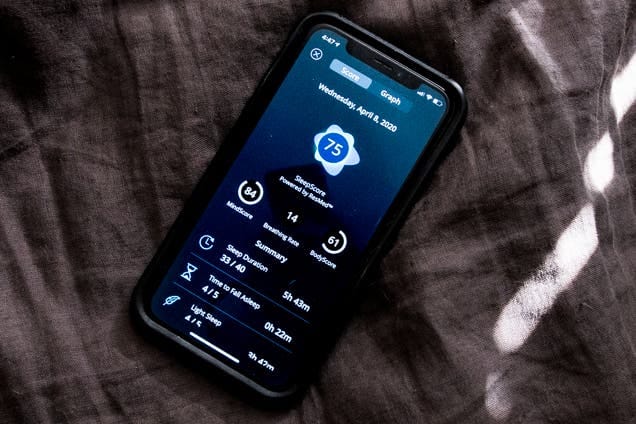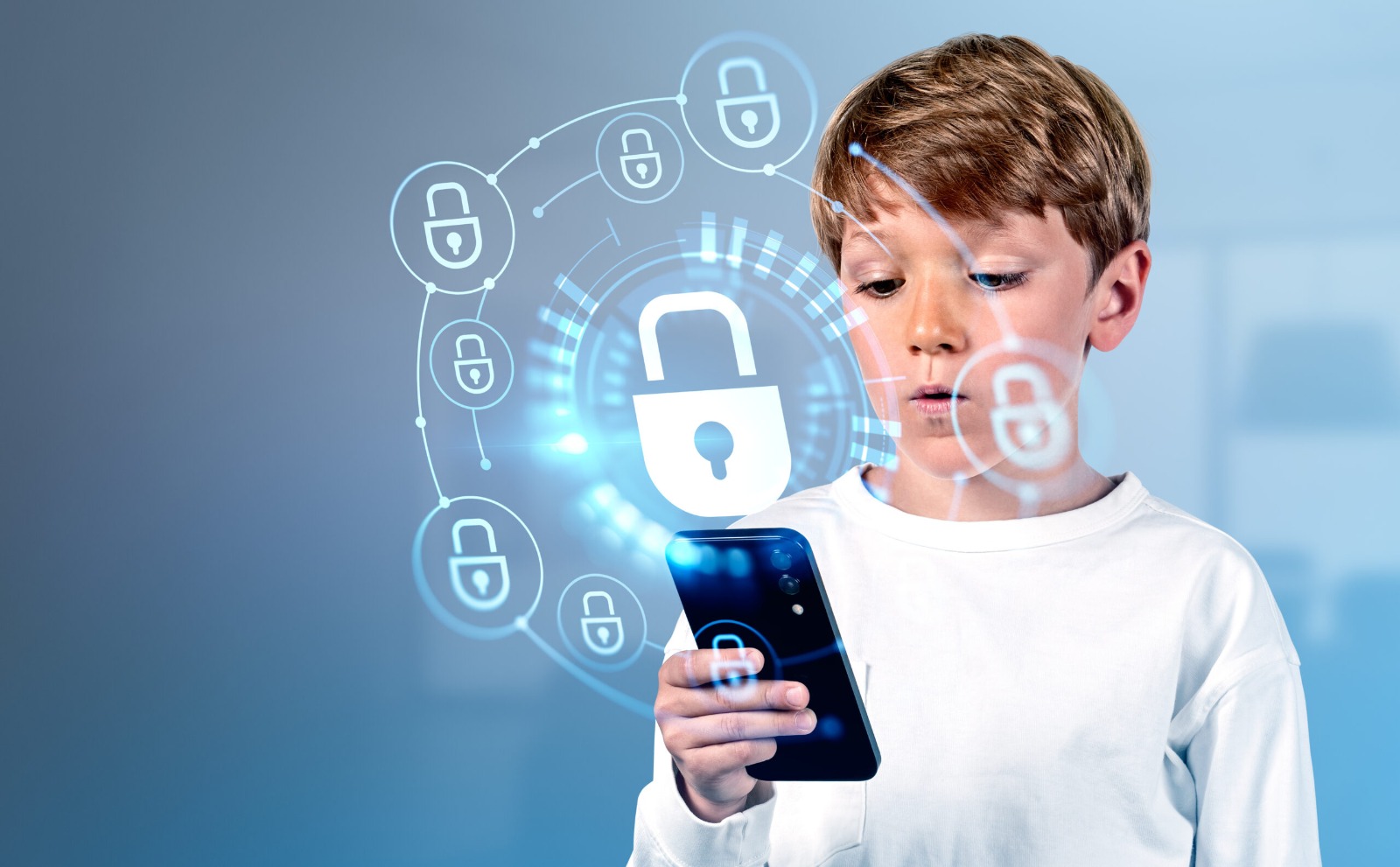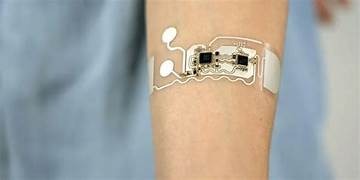
Can Technology Help You Sleep Better? Exploring Apps, Trackers, and Sound Devices
Technology can indeed help improve sleep by tracking, guiding, and optimizing rest. From apps and wearables to white noise machines and smart home devices, modern tools reduce distractions, create soothing environments, and offer personalized insights. However, mindful usage is key to avoiding over-reliance.
✨ Raghav Jain

Introduction
Sleep is the foundation of good health—it restores your body, strengthens memory, and balances emotions. Yet, in today’s fast-paced world, millions struggle with insomnia, irregular sleep cycles, or poor-quality rest. Ironically, while technology often keeps us awake, it can also become a powerful tool to help us sleep better.
From sleep-tracking apps to wearable devices and sound machines, technology offers solutions that monitor, analyze, and enhance sleep quality. But can gadgets really make a difference? Or do they add more screens and stress?
This article explores how technology can support healthier sleep, the science behind it, the tools available, and practical ways to integrate them into your nightly routine. In today’s fast-paced world, sleep has become a luxury rather than a necessity for many people. With busy schedules, long work hours, constant exposure to screens, and rising stress levels, good-quality sleep often takes a back seat. Yet, science continues to emphasize that sleep is one of the most important pillars of health, influencing not only our energy levels but also our mood, productivity, and overall well-being. Amid this struggle for restful nights, a new question arises: can technology, often blamed for our sleeplessness, actually become the solution to better sleep? With the rise of sleep apps, wearable trackers, and sound-based devices, technology is stepping in as an ally to help us reclaim the rest we desperately need.
The role of sleep technology is built on a simple idea—understanding how we sleep and creating conditions that promote better rest. Many of us do not realize how fragmented or shallow our sleep can be until it begins to show up as fatigue, irritability, or declining health. Traditional approaches like keeping a sleep diary or practicing relaxation before bed are helpful, but they rely heavily on self-awareness and discipline. Modern sleep technologies, however, provide a more scientific and data-driven approach. They track, analyze, and even attempt to influence our sleep cycles in real time. This makes it easier for us to identify patterns, adopt better habits, and create an environment more conducive to deep rest.
Sleep apps are one of the most accessible ways people are beginning to manage their rest. Available on most smartphones, these apps use sensors or microphones to monitor sleep duration and quality. Some measure movements through accelerometers, while others detect sounds like snoring or tossing and turning. The results are presented in simple charts that reveal how much time you spent in light, deep, and REM sleep. Many apps also include relaxation tools such as guided meditation, calming music, or breathing exercises to help users wind down before bedtime. For individuals who struggle with racing thoughts or anxiety at night, such features can create a structured routine that signals the body and mind that it is time to rest.
Wearable sleep trackers take this a step further by offering more precise monitoring. Devices such as smartwatches, fitness bands, or even specialized headbands collect data not only on movement but also on heart rate, oxygen levels, and in some cases, brain activity. This level of detail provides a clearer picture of sleep quality and can highlight issues such as irregular breathing, which might point toward sleep disorders like sleep apnea. The convenience of wearables is that they work passively in the background. You simply wear them to bed, and in the morning, you wake up with a detailed report about your night. Over time, these trackers allow you to identify consistent patterns—perhaps you sleep better on nights you avoid late caffeine, or maybe your quality dips when your bedtime stretches past midnight. Armed with this knowledge, you can make small lifestyle adjustments that significantly improve your rest.
Another category gaining attention is sound-based sleep technology. Many people find it difficult to fall asleep because of environmental distractions such as city noise, neighbors, or even silence that feels too heavy. Sound devices, often marketed as white noise machines or smart speakers, provide a steady audio backdrop designed to mask sudden, disruptive noises. Options range from classic white and pink noise to nature sounds like rainfall, ocean waves, or forest ambiance. The consistent audio helps the brain relax and reduces the chances of waking up to small disturbances. Some sound devices go beyond simple masking, incorporating adaptive algorithms that adjust the volume in response to environmental sounds. Others offer binaural beats or specific sound frequencies believed to influence brainwaves and encourage deeper sleep stages.
Despite their promise, these technologies are not miracle solutions. It is important to recognize that sleep is influenced by a variety of factors, including lifestyle, stress levels, diet, and overall health. A tracker may show you that you are only getting five hours of quality rest, but it will not magically add two more hours to your night. Similarly, a sound machine may mask the noises around you, but it will not counteract the effects of scrolling on your phone until 2 a.m. The most effective way to use technology for sleep is as part of a larger commitment to good sleep hygiene. This includes habits such as keeping a consistent bedtime, avoiding heavy meals and screens before bed, and creating a comfortable sleep environment.
Critics often point out that relying too much on sleep technology may create its own set of problems. For instance, obsessively checking sleep data can cause “sleep anxiety,” where people become more stressed about their sleep quality and end up sleeping worse. In addition, the accuracy of consumer-grade devices is still a subject of debate among scientists. While they can give a general idea of sleep patterns, they are not as precise as clinical sleep studies conducted in medical settings. This means that while apps and wearables are useful for awareness and habit-building, they should not be treated as diagnostic tools for serious sleep disorders.
On the positive side, the biggest strength of sleep technology lies in its ability to empower individuals to take charge of their rest. Instead of guessing why you feel tired every morning, you can use tangible data to uncover trends and make informed changes. Over time, these small, technology-supported adjustments can accumulate into meaningful improvements in sleep quality. Furthermore, many people find comfort in the ritual itself—wearing a tracker, setting a calming app, or switching on a white noise machine becomes a nightly routine that signals the brain it is time to relax.
As technology continues to evolve, the future of sleep enhancement looks even more promising. Developers are exploring AI-powered apps that personalize sleep recommendations, mattresses embedded with sensors to adjust firmness based on body position, and even devices that emit gentle scents like lavender to encourage relaxation. These innovations are still in their early stages, but they highlight a growing recognition of sleep as a key frontier in health and wellness technology.
Ultimately, the question is not whether technology alone can fix our sleep, but whether we can use it as a helpful companion in our journey toward better rest. For many people, a combination of awareness, healthier habits, and supportive tools is what finally leads to peaceful, restorative nights. In this sense, technology is not the enemy of sleep but rather a guide that helps us understand and respect the natural rhythms our bodies crave. By embracing these innovations wisely and balancing them with mindful lifestyle choices, we can move closer to a world where restful sleep is not a struggle but a natural part of daily life.
Understanding Sleep and Its Importance
Sleep isn’t just “rest time.” It’s an active biological process made of stages:
- Light Sleep: Body relaxes, heartbeat slows.
- Deep Sleep: Physical repair and growth happen.
- REM Sleep: Brain consolidates memories, dreams occur.
Good sleep means:
- 7–9 hours of quality rest
- Smooth transition between stages
- Proper circadian rhythm (body clock alignment)
Poor sleep leads to:
- Fatigue and irritability
- Weak immune system
- Increased risk of obesity, diabetes, heart disease
- Poor concentration and memory issues
How Technology Supports Sleep Health
Technology can target sleep issues in different ways:
- Monitoring: Sleep trackers measure duration, quality, and patterns.
- Regulating: Devices like sound machines or smart lights set the right environment.
- Guiding: Apps provide meditation, bedtime reminders, and relaxation techniques.
- Correcting: Feedback from gadgets helps improve sleep habits.
Apps That Help You Sleep
1. Meditation & Relaxation Apps
Calm, Headspace, and Insight Timer use guided meditations, breathing exercises, and bedtime stories to reduce anxiety and prepare your mind for sleep.
2. Sleep Tracking Apps
Apps like Sleep Cycle or Pillow track your movements and sounds while you sleep, analyzing patterns and waking you up gently during light sleep.
3. White Noise & Sound Apps
Nature sounds, rain, or white noise mask background disturbances. Apps like Noisli or Relax Melodies provide customizable options.
4. Smart Alarm Apps
Instead of jolting alarms, these apps wake you during light sleep phases with gentle sounds or vibrations.
Wearable Trackers for Sleep
1. Smartwatches (Fitbit, Apple Watch, Garmin)
Track heart rate, oxygen levels, movement, and sleep cycles. Provide detailed reports on sleep quality and disturbances.
2. Smart Rings (Oura, Motiv)
Small, comfortable devices that monitor heart rate variability, temperature, and sleep depth—great for those who dislike bulky watches.
3. Headbands and Sensors
Some gadgets monitor brainwaves and guide relaxation with sound or vibration feedback.
Sound Devices and Smart Gadgets
1. White Noise Machines
Produce consistent background sounds (rainfall, waves, static) that block sudden noises like traffic or snoring.
2. Smart Lights
Gradually dim in the evening and simulate sunrise in the morning to align your circadian rhythm.
3. Smart Beds and Mattresses
Adjust firmness, regulate temperature, and track sleep movement to ensure comfort throughout the night.
4. Aromatherapy Diffusers
Paired with lavender or chamomile oils, they create a calming atmosphere to promote relaxation.
Benefits of Sleep Technology
- Better Awareness
- Trackers reveal sleep habits you may not notice, like frequent waking or short deep sleep cycles.
- Stress Reduction
- Meditation and breathing apps lower stress hormones, making it easier to fall asleep.
- Personalized Sleep Coaching
- Some apps provide tips based on your unique patterns.
- Noise and Disturbance Control
- Sound devices mask disruptions, creating a stable environment.
- Circadian Rhythm Support
- Smart lights and alarms help reset body clocks, especially for shift workers or jet-lagged travelers.
Daily Practices with Sleep Technology
Morning Routine
- Use smart alarms that wake you gently
- Track your sleep duration and review reports briefly
- Expose yourself to natural light or smart sunrise lamps
Midday Routine
- Limit caffeine intake, use hydration reminder apps
- If stressed, try a 5-min meditation app session
- Avoid screen fatigue by scheduling screen breaks
Evening Routine
- Set a reminder on your phone or smartwatch to start winding down
- Use relaxation apps for guided breathing or bedtime stories
- Switch on white noise or calming soundscapes
- Dim smart lights and avoid harsh blue light
Weekly Sleep-Enhancing Habits
- Review weekly sleep tracker insights to spot patterns
- Try one new sound (rain, ocean, forest) and note its effect
- Adjust your sleep environment—experiment with smart light timings
- Dedicate one night to digital detox: no screens before bed
- Combine physical relaxation (yoga, stretches) with a guided meditation app
Common Sleep Problems and Tech Solutions
Insomnia
- Use meditation apps for relaxation
- Smart alarms to avoid groggy wake-ups
Nighttime Noise
- White noise machines or calming playlists
Irregular Sleep Cycles
- Smart lights to regulate circadian rhythm
- Trackers to identify patterns
Stress and Anxiety
- Guided breathing apps before bedtime
Overheating in Sleep
- Smart beds or cooling mattress pads
Myths About Sleep Technology: Busted!
“Sleep apps can replace doctors.”
→ False! Apps are tools, not medical solutions. Chronic insomnia needs professional care.
“Wearing trackers at night is harmful.”
→ Not true. Most devices emit minimal radiation, far less than your phone.
“White noise damages ears.”
→ Incorrect. Moderate levels are safe and even recommended for babies.
“Tech makes you dependent.”
→ Not necessarily. The goal is awareness and habit-building—not lifelong reliance.
“Screens are always bad before bed.”
→ Blue light is harmful, but if used wisely (with filters or red-light mode), apps can still help relaxation.
Sample Daily Sleep Tech Plan
Breakfast Time
- Check last night’s sleep data
- Open blinds or use sunrise lamp
Afternoon
- Short relaxation app session during break
- Avoid caffeine after 3 PM
Evening
- Switch on calming sound machine
- Dim smart lights 1 hour before bed
- Guided meditation or audiobook app for winding down
Night
- Wear tracker or smart ring for monitoring
- Fall asleep with white noise or nature sounds
Conclusion
Technology is often blamed for keeping us awake—but when used mindfully, it can actually become a sleep ally. From apps that guide relaxation, to trackers that reveal hidden patterns, to sound and light devices that create the perfect environment—technology provides practical ways to improve sleep quality.
Still, balance is key. Gadgets can support better sleep, but they can’t replace healthy habits like regular exercise, a balanced diet, and screen discipline.
So, instead of letting technology steal your rest, let it guide, monitor, and enhance it. Start small: try a calming app tonight, or set a gentle smart alarm tomorrow. Over time, these small changes can lead to deeper, more restorative sleep.
Sleep smarter, not harder—with the right tech on your side.
Q&A Section
Q1:- How can technology improve sleep quality in daily life?
Ans :- By tracking patterns, reducing distractions, and creating soothing environments, technology provides tools like apps, wearables, and sound machines to enhance rest and maintain a healthy sleep cycle.
Q2:- What role do sleep tracking apps play in monitoring rest?
Ans :- These apps analyze movement, breathing, and sleep stages, giving users insights into duration, quality, and habits that impact their nightly rest.
Q3:- How do wearable devices like smartwatches assist in sleep improvement?
Ans :- Wearables track heart rate, oxygen levels, and REM cycles, providing data-driven suggestions for improving bedtime routines and overall health.
Q4:- Can smart alarms enhance the waking experience?
Ans :- Yes, smart alarms wake users during light sleep phases, minimizing grogginess and making mornings more refreshing and energized.
Q5:- How do sound machines and white noise devices promote relaxation?
Ans :- By masking environmental noise with soothing sounds such as rain or ocean waves, they calm the mind and support deeper, uninterrupted sleep.
Q6:- What benefits do guided meditation and relaxation apps provide?
Ans :- Apps with breathing exercises, bedtime stories, and guided meditations reduce anxiety, helping the brain transition smoothly into restful sleep.
Q7:- How does smart home integration aid better sleep?
Ans :- Devices like smart bulbs and thermostats adjust lighting and temperature to align with natural circadian rhythms, enhancing comfort and rest.
Q8:- Can technology reduce blue light exposure before bed?
Ans :- Yes, screen filters and apps minimize blue light, which otherwise suppresses melatonin, allowing the body to prepare naturally for sleep.
Q9:- What are the risks of over-relying on technology for sleep?
Ans :- Excessive dependence may cause stress, inaccurate data interpretations, and disrupted routines, so balance and mindful use are essential.
Q10:- How is AI shaping the future of sleep technology?
Ans :- AI personalizes sleep recommendations, learns user habits, and integrates multiple data points to deliver smarter, adaptive sleep solutions.
Similar Articles
Find more relatable content in similar Articles

Protecting Kids in the Digital..
In an increasingly connected w.. Read More

Data Centers and the Planet: M..
As cloud computing becomes the.. Read More

Wearable Health Sensors: The D..
Wearable health sensors are re.. Read More

Digital DNA: The Ethics of Gen..
Digital DNA—the digitization a.. Read More
Explore Other Categories
Explore many different categories of articles ranging from Gadgets to Security
Smart Devices, Gear & Innovations
Discover in-depth reviews, hands-on experiences, and expert insights on the newest gadgets—from smartphones to smartwatches, headphones, wearables, and everything in between. Stay ahead with the latest in tech gear
Apps That Power Your World
Explore essential mobile and desktop applications across all platforms. From productivity boosters to creative tools, we cover updates, recommendations, and how-tos to make your digital life easier and more efficient.
Tomorrow's Technology, Today's Insights
Dive into the world of emerging technologies, AI breakthroughs, space tech, robotics, and innovations shaping the future. Stay informed on what's next in the evolution of science and technology.
Protecting You in a Digital Age
Learn how to secure your data, protect your privacy, and understand the latest in online threats. We break down complex cybersecurity topics into practical advice for everyday users and professionals alike.
© 2025 Copyrights by rTechnology. All Rights Reserved.